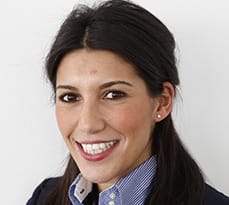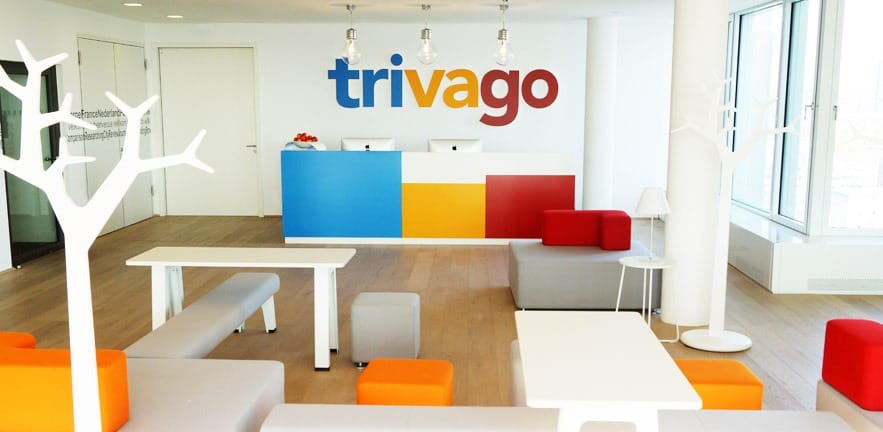What do you need to survive and thrive at a start-up? For Chara Georgiadou it was flexibility, commitment… and two weeks on the Cambridge Judge Business School Executive Education General Management Programme.

Joining a new company is always a gamble, but for Chara Georgiadou it is one that paid off. In 2008, she started as an intern with up-and-coming hotel price comparison website trivago. At the time they had just 20 employees.
“The goal back then was to set up the Greek platform (www.trivago.gr), and go from there,” she remembers. “That was the initial job description! So I did and, step by step, I took up more responsibility.”
You need to be a certain kind of person to throw in your lot with a startup, says Georgiadou. Being committed is vital, as is not being too concerned with the traditional corporate trappings. “You need to put aside your other needs, like salary or position, and let the excitement drive you,” she says.
“I remember very vividly my friends and family asking me what my role was when I started at trivago, and I couldn’t really tell them, because I was pretty much doing everything back then! Marketing, translations, customer relations, sales, community management – everything. Yes, it was all basic stuff, so I might not have expertise in all of these – but now I have knowledge of all these areas which means I can support my teams much more easily.”
That dedication might feel like a sacrifice in the early days, she says, but the right company will reward it. Once trivago saw how focused Georgiadou was, she says, they kept pushing her to succeed – and the recognition she gets is one of the reasons why she has stayed. “But I’ve never had a plan,” she points out. “Things went well but I had no idea where I wanted to end up. The company grew so fast that the changes were amazing for all of us. I could never imagine that this was going to happen.”
trivago is now the world’s biggest hotel search site, with more than 500 staff operating 52 platforms in more than 33 languages. And Georgiadou’s grown with the company. She’s now a country manager, deciding on strategy, goals, budgeting and forecasting for the Greek, Turkish, Serbian, Slovenian and Croatian teams.
So how did she get there? Georgiadou studied for a bachelor’s degree in sports science at the National and Kapodistrian University in Greece and then worked as a fitness trainer before undertaking her MSc in organisational management at Ruhr-Universität Bochum in Germany. She took the role at trivago, she says, because it sounded interesting at the time. But she had no idea how it would turn out.
“It felt like being part of a family when we were starting out,” she remembers. “At the beginning, we didn’t really know where we were going. We didn’t have a clear goal or a mission. We were just trying things out. It was great to see us progress.”
But growing into a new role in a rapidly expanding company can be challenging – which is one of the reasons Georgiadou decided to attend the General Management Programme in May 2014. “Team leading is one of my biggest responsibilities, and I realised that I needed some support – the more my teams grow, the more challenging it becomes.”
One of Georgiadou’s main issues was where to draw the boundaries between a team and a manager. “I was very involved in all the processes and I wanted to learn how to differentiate my roles and responsibilities and gain a little bit of distance – not in a negative way, but to find out where the borders are. It was becoming more challenging to have a hands-on attitude and support the team at the same time.” The course, she says, helped her realise the importance of stepping back, prioritising and focusing on important issues.
Another aspect that she has found useful in her career was the focus on macroeconomics, an area she hadn’t previously been familiar with. “I still go back and read the notes. One of my markets is Greece. As well as taking us through how an economy functions, our professor gave us his opinion of what was happening there and that’s something that I kept in mind when writing this year’s strategy. It was very helpful to have his perspective, as it meant that my strategy ended up being less risky.”
The diversity of the participants on the programme also helped her think more widely. “Everyone came from different backgrounds – they were all ages, from all sectors. We had a lot of teamwork and it was great to see the strengths and weaknesses in different areas and benefit from all the diverse knowledge to come up with the best results. We exchanged experiences and compared company cultures – everyone was fascinated to find out that at trivago we have flexible holidays!”
So what’s the next challenge? Unsurprisingly, rigid career structures aren’t for Georgiadou. “I still don’t like to plan my future,” she says. “But I’m really enjoying being part of this company right now. There’s this idea that you’re supposed to change your job every three to five years so it looks good on your CV, but I think that’s an old-fashioned concept. I am really enjoying being part of this company right now. So as long as I’m still loving it, and learning, and developing as a person and an employee, I’m very willing to stay.”
Chara is interested in hearing from…
…others who have started their careers in start-ups. I’d love to speak to those who have had success and hear their experiences


